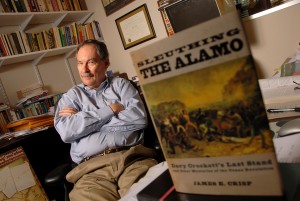In an ever-changing world, understanding our history becomes all the more necessary. It brings us a sense of the complexity and contingency of events. It provides us with rich and diverse perspectives. It informs us about the prevalence of unintended consequences. History creates connections between nations, cultures, and economic realities and encourages one to examine events and change using careful analysis.
The History major provides our students with strong critical skills which are valuable to informed citizenship and for a variety of careers. A history major has traditionally served as a foundation for careers in such professions as banking and business administration, law, government service, social work, and teaching. In recent years, many of our undergraduates have added a minor in fields such as communication, computer science, foreign language, social science, or business administration. These combinations have proven attractive in business and government service careers. Our graduates are lawyers, business owners, museum directors, doctors, archivists, politicians, political consultants, judges, farmers, chefs, military officers, and of course teachers and professors of history. Whether or not they became historians, they use their training in historical thinking as they ask: why a relationship worked, a merger failed, a disease spread, an idea or faith took hold, or two communities or peoples could not co-exist.
B.A. and B.S. programs are available. All programs offer a great deal of student choice in courses and electives. The B.S. degree requires a concentrated study in the area of science, engineering, or mathematics. It is a useful degree track especially for a double-major with one of the STEM disciplines.
A B.A. with Teacher Education Concentration option is available. The teacher track requires a 3.0 GPA to enter. It is designed to earn the B.A. degree while including courses that prepare a future teacher to meet North Carolina’s professional standards for high school Social Studies. Students who graduate with at least a 3.5 GPA are admitted to the fifth year of study in the Master of Arts in a Teaching program in the College of Education. Preparation for teaching and certification to teach for the state of North Carolina is done in the graduate studies.
For those who do wish to go on in the historical profession, we offer excellent preparation for the best graduate schools.
The History major learns in small classes that allow a great deal of individual attention. In addition, the History faculty advisors offer close contact and personal attention to each student. The History major is a place to get a “small college” education in a big state university.
“A small body of determined spirits fired by an unquenchable faith in their mission can alter the course of history. ” – Mohandas Gandhi
Courses include:
History majors take 4 courses in introductory core areas: World History, Asian/African/Latin American History, European History, and U.S. History. All students take a 15-student Sophomore Seminar (on researching and writing history) and the 15-student Senior Seminar (exploring a research topic with a professor). The remainder of the required advanced classes are electives, allowing the pursuit of either a broad educational experience or a focused study.
History majors have the opportunity to take Honors courses, Independent Study reading and research courses, and write an Honors Thesis to graduate with Honors in History.
| College | |
| Discipline |
|
| Academic Department | |
| Departmental Contact | |
| Major Overview | |
| Plan Requirements | |
| Semester Sequence | |
| Related Majors | |
| Skills You Could Develop |
|
| Learn More About This Major | |
| Career Titles | |
| Learn More About Careers |
